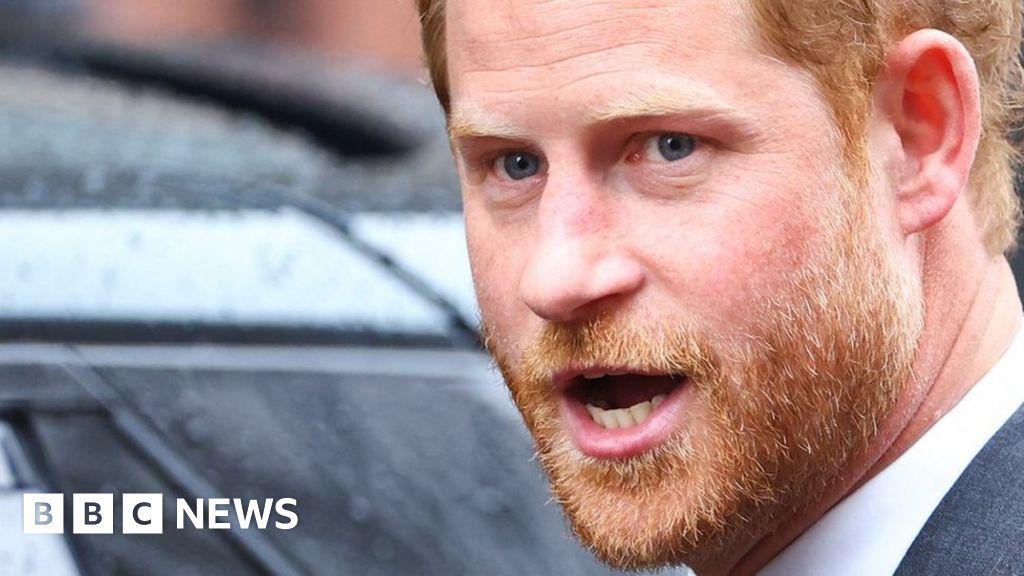In recent developments, Prince Harry has taken center stage in a British Channel ITV documentary, asserting that the primary reason for his estrangement from the royal family is his ongoing battle with the British tabloid press. According to Harry, his relentless fight against media intrusion has created a rift, not his behavior or actions since relocating to California.
Harry’s claims are rooted in his belief that the British media has consistently undermined and vilified him, a sentiment that has driven him to pursue numerous legal battles against various tabloids. He suggests that his family, particularly his brother Prince William and his father King Charles, avoid confronting the press because they rely on media support for their public roles. Harry portrays himself as the brave one, willing to challenge the press head-on, a stance he implies his family members lack the courage to adopt.
Critics argue that Harry’s narrative conveniently deflects responsibility from his own actions. They point to several controversial moments, including revelations in his memoir “Spare,” where he divulged intimate details about his family, such as his brother’s private parts and his sister-in-law’s text messages. These revelations, critics assert, have significantly contributed to the strained relationships within the royal family.

The documentary further illustrates how Harry feels isolated in his fight, framing it as a lonely battle against a powerful and invasive media industry. Yet, this portrayal has been met with skepticism. Many believe that Harry’s continuous public outbursts and media appearances, including the recent ITV interview, only serve to fuel the very industry he condemns. Critics argue that Harry is being exploited by media outlets like ITV, who use his status and scandalous revelations to generate headlines and viewership.
Harry’s detractors also highlight his apparent inability to accept responsibility for his actions. Over the past few years, he has consistently blamed external factors—particularly the press—for his troubles, while downplaying his role in the ongoing family discord. This pattern of behavior, they argue, showcases a lack of maturity and self-awareness.

Furthermore, critics draw comparisons between Harry and other members of the royal family who continue to focus on tangible, service-oriented initiatives. Prince William, for instance, is actively involved in efforts to address homelessness and early childhood development alongside his wife, Kate Middleton. These initiatives are seen as contributing positively to society, contrasting sharply with Harry’s perceived self-centeredness.
The documentary has sparked debates about the effectiveness and appropriateness of Harry’s approach. Some believe that his focus on media battles distracts from more pressing and impactful issues. They argue that Harry’s obsession with privacy and media scrutiny is misplaced, especially given his own willingness to share personal details for public consumption.
Ultimately, Harry’s assertion that his estrangement from the royal family stems solely from his war with the press is seen by many as a form of deflection. It overlooks the complex web of personal actions, public statements, and media engagements that have characterized his and Meghan Markle’s departure from royal duties. As Harry continues to navigate his new life in the public eye, the question remains whether he will ever fully acknowledge his role in the ongoing royal rift.
This ITV documentary and the reactions it has provoked underscore the enduring complexities of Harry’s relationship with the royal family and the British media. While Harry views himself as a courageous crusader against media exploitation, critics argue that his actions reveal a deeper struggle with personal accountability and a failure to understand the broader consequences of his choices.
News
Celine Dion and Lady Gaga IGNORE Meghan on stage at the 2024 Olympic Games: ‘WE DO NOT WANT A SCRIPTED RELATIONSHIP’
Celine Dion and Lady Gaga Humiliate Meghan Markle During 2024 Olympics Opening Ceremony During the 2024 Olympic opening ceremony, Celine Dion and Lady Gaga publicly criticized Meghan Markle, calling her a “grifter” and igniting intense controversy. Their performance, intended to…
Carole Malone FRENCH: ‘Don’t think of yourself as a hero if you’re just blaming others’. Harry’s claim that tabloids caused a rift between him and RF was exposed by Carole Malone
Prince Harry has once again become a lightning rod for controversy following his latest appearance in an ITV documentary detailing his legal battle against tabloid newspapers. The documentary sheds light on the Duke of Sussex’s recent victory against Mirror Group…
UPDATE: Prince William removing Queen Camilla’s sister from THE ROYAL PAYROLL after two decades
Prince William has decided not to renew the contract of Annabel Elliot, Queen Camilla’s sister, as the interior designer for the Duchy of Cornwall, according to the recently released Integrated Annual Report of the royal family’s historic estate. This decision…
Harry MAKES RIDICULOUS ‘STORIES’ about Queen Elizabeth in new ITV documentary
A new ITV documentary featuring Prince Harry has sparked significant controversy, as it makes bold claims about his relationship with the late Queen Elizabeth II and Princess Diana. The documentary, which premiered on Thursday, has reportedly caused a stir within…
Prince Harry ‘RUSHLY LOOKING FOR ANSWERS’ from RF. Through latest statement on challenging Invictus Games
King Charles III faces a moral dilemma after Prince Harry announced he will bring his biggest project to England in 2027, as revealed on a British morning show. On Tuesday, Harry announced that the eighth Invictus Games veterans event will…
Prince Harry admits to ‘CENTRAL PIECE’ in split between him and RF
Prince Harry has revealed that the intense and prolonged battle with British tabloids was a key factor in the rift between him and the royal family. In a recent interview on ITV, Harry spoke candidly about the impact of his…
End of content
No more pages to load










